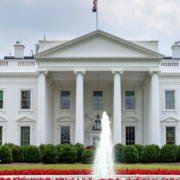Beginning this week, NASH is expanding its regular updates to encompass a broader scope of federal health policy endeavors to include other matters of importance to providers. Feel free to share this newsletter with others in your organization or to send us the email addresses of those you think might be interested and we will send it directly to them.
The following is the latest such information from the federal government as of 2:30 p.m. on Friday, March 26.
NASH Advocacy
The Senate voted 90-2 to extend the moratorium on the two percent sequester of Medicare payments through the end of 2021. The House will take up the bill when it returns to Washington, DC in mid-April. The current moratorium will expire on March 31, but CMS is expected to use its authority to hold Medicare payments for up to 14 days to give the House time to pass the legislation. NASH sent a thank you note to all 90 senators who voted for the bill.
 The White House
The White House
COVID-19
- With funding in large part from the American Rescue Plan, the White House announced that HHS will spend nearly $10 billion to expand access to vaccines and better serve communities of color, rural areas, low-income populations, and other underserved communities in the COVID-19 response. The money will be spent in the following manner:
- $6 billion for community health centers to expand access to vaccines in underserved communities. Go here for more information about the distribution of this money.
- $3 billion to “strengthen vaccine confidence.” This funding will go directly to states, territories, and some large cities.
- A partnership with dialysis clinics to vaccinate dialysis patients. The CDC issued two statements on its role in this aspect of the new spending: find them here and here.
- $330 million for community health workers: $300 million to jurisdictions for community health worker services to support COVID-19 prevention and control and $32 million for training, technical assistance, and evaluation.
- The White House has posted a transcript of the March 26 press briefing provided by its COVID-19 response team and public health officials.
Department of Health and Human Services
COVID-19
- HHS has posted a technical report with clinical presentation, disease progression, and related information from clinicians in the field treating COVID-19 patients after the acute phase of the virus has passed – patients frequently referred to as “COVID long haulers.”
- HHS has published a presentation describing how one urban safety-net hospital created a “hospital at home” program to help it accommodate large influxes of COVID-19 patients. The presentation addresses the challenge the hospital faced, the target population its program served, workflows, staffing, outcomes, patient experience, and lessons learned.
- Another HHS presentation describes the 72-hour transformation of a long-term acute-care hospital into a facility that served only COVID-19 patients.
Centers for Medicare & Medicaid Services
COVID-19
- CMS has issued a section 1135 waiver to Arkansas. 1135 waivers give states greater flexibility to serve their Medicaid beneficiaries during the COVID-19 public health emergency.
Health Policy News
CMS has posted the latest edition of MLN Connects, its online publication with the latest information about Medicare reimbursement policy. The following is the table of contents of the March 25 edition, with links to the individual articles:
News
- Medicare Shared Savings Program: Application Deadlines for January 1, 2022, Start Date
- Repetitive, Scheduled Non-Emergent Ambulance Transport: Documentation Requirements
- PT During COVID-19 & Response to Texas Storm
Compliance
Claims, Pricers, & Codes
MLN Matters® Articles
- Common Working File (CWF) Edits for Medicare Telehealth Services and Manual Update
- Correction to Period Sequence Edits on Home Health Claims
- Implementation of Changes in the End-Stage Renal Disease (ESRD) Prospective Payment System (PPS) and Payment for Dialysis Furnished for Acute Kidney Injury (AKI) in ESRD Facilities for Calendar Year (CY) 2021
- Updated Billing Requirements for Home Infusion Therapy (HIT) Services on or After January 1, 2021
- Update to Rural Health Clinic (RHC) Payment Limits
Centers for Disease Control and Prevention
COVID-19
- The CDC has updated its guidance for how nursing homes can prepare for an outbreak of COVID-19.
Food and Drug Administration
COVID-19
- The FDA announced that “Given the sustained increase in [COVID-19] viral variants in the United States that are resistant to bamlanivimab administered alone, and the availability of other authorized monoclonal antibody therapies that are expected to retain activity to these variants, the U.S. Government, in coordination with Eli Lilly and Company, will stop the distribution of bamlanivimab alone starting today, March 24, 2021.” Using the other monoclonal antibody therapies, the FDA reasons, will increase the likelihood of successful treatment against COVID-19 variants. Go here to see the FDA’s announcement and explanation and for links to resources that describe the available monoclonal antibodies and their differences in greater detail.

 The White House
The White House CMS has posted
CMS has posted 